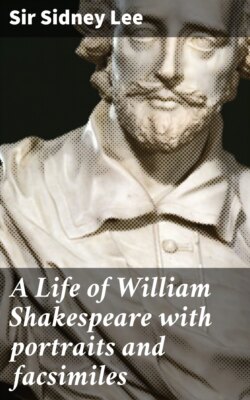Читать книгу A Life of William Shakespeare with portraits and facsimiles - Sir Sidney Lee - Страница 37
На сайте Литреса книга снята с продажи.
The acting companies.
ОглавлениеTable of Contents
Shakespeare’s earliest reputation was made as an actor, and, although his work as a dramatist soon eclipsed his histrionic fame, he remained a prominent member of the actor’s profession till near the end of his life. By an Act of Parliament of 1571 (14 Eliz. cap. 2), which was re-enacted in 1596 (39 Eliz. cap. 4), players were under the necessity of procuring a license to pursue their calling from a peer of the realm or ‘personage of higher degree;’ otherwise they were adjudged to be of the status of rogues and vagabonds. The Queen herself and many Elizabethan peers were liberal in the exercise of their licensing powers, and few actors failed to secure a statutory license, which gave them a rank of respectability, and relieved them of all risk of identification with vagrants or ‘sturdy beggars.’ From an early period in Elizabeth’s reign licensed actors were organised into permanent companies. In 1587 and following years, besides three companies of duly licensed boy-actors that were formed from the choristers of St. Paul’s Cathedral and the Chapel Royal and from Westminster scholars, there were in London at least six companies of fully licensed adult actors; five of these were called after the noblemen to whom their members respectively owed their licenses (viz. the Earls of Leicester, Oxford, Sussex, and Worcester, and the Lord Admiral, Charles, lord Howard of Effingham), and one of them whose actors derived their license from the Queen was called the Queen’s Company.
